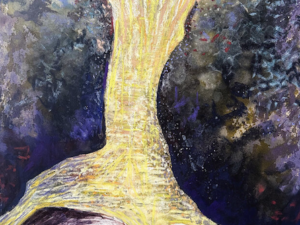
Unconditional love is another way of saying “loving the essence” of someone, regardless of what they do or don’t do. That’s very different than saying “love them without a reason.” You are loving them for what they actually are, without those fears and insecurities that they need to move past. I would say both God and Christ love unconditionally and this is what the ultimate type of human love is modeled after.
It is easy to profess universal love for everyone in general, and to claim it for people you don’t even know, based on them being a child of God and therefore deserving. Somehow unconditional love is more challenging the better we know someone and the more we become involved. But this, I feel, is where it is even more important; I believe we would rather have our love be freeing instead of confining, supportive instead of draining.
Unconditional love stems from appreciating intrinsic, wonderful qualities and attributes which are uniquely and directly derived from God. These attract us to a particular person. Those unique qualities and attributes vested in each human are completely conditional on the Creator, however. They are always good and complete, without the overlay of stuff that needs to be worked through.
That stuff that needs to be worked out is not the person, nor is it what determines our love or lack of it. The stuff that needs to be worked through changes, while the essential person does not. When we say someone is “growing” or “progressing” they are simply losing excess baggage that had been superimposed needlessly on their being, or they are exercising and further developing their unique combination of Godlike qualities and attributes.
Unconditional love rejoices in those Godlike qualities and attributes ever-present in each and every idea of God. (It’s a delightful way to live, seeing that, in everyone everywhere!) Then for those you love more or who have a combination of qualities you especially appreciate, you’ll want to go beyond that, to discern their real needs, and rejoice in helping them grow and progress (and not just merely bask in their presence).
Hopefully, that person simultaneously can do this for you as well. Ideally, you can mutually own up to the fact that this potential is there between you, and both will be open to consciously leveraging it. Can you both say, “Yes, support me in being the best I can be,” based on feeling secure about being loved unconditionally, regardless of what surface clutter needs to be cleared away? This is very different than fumbling around striving to feel worthy or good enough or trying to please someone superficially, which will never satisfy.
With conditional love, who made you God to dictate what is required to be worthy at any moment? Conditions can change, are hard to discern, and you’ll never hit the moving target. That kind of relationship is crazy making and bound for frustration. Do you love yourself conditionally or unconditionally?
One must be willing to separate one’s own junk from one’s self-identification, as well as trust (unconditional) love more than one’s own (conditional) fears and insecurities. As the Bible says, “Perfect love casts out fear.” At best, in a strong relationship, you’ll both be doing that, both for yourselves as well as for the other. Above all, this takes (mutual and individual) ongoing courage and continually frank honesty. This honesty itself is facilitated by the very trust and sense of security unconditional love inspires.
Unconditional love is not complacent nor stagnant, but always ready to really listen and effectively support the other moving past their superimposed (and objectively unnecessary) challenges – freeing them to be the most and best of what they intrinsically are – by holding that space for them, and by refusing to identify them with what is actually no part of them.
This is why discerning the difference between what is inherent (unchangeable) in someone versus what is simply a need to be addressed, is so important in determining longterm compatibility. When that is clear (and you cherish the unchanging core of someone) supporting genuine needs being met is a true joy, a soaring freedom, and never onerous. You are in it for the fabulous baseline which remains the same. The rest is just adventure, liberation, and healing.







